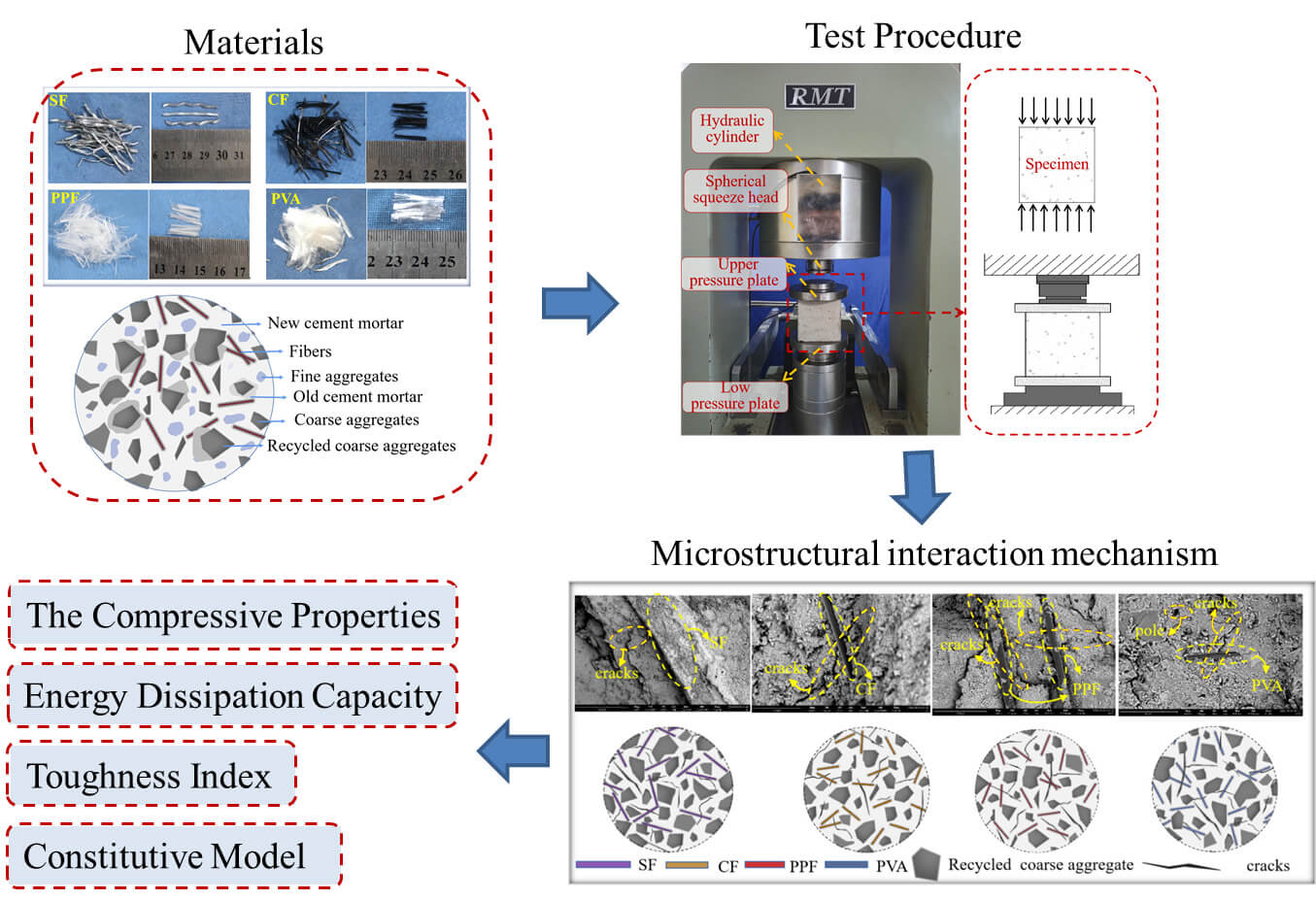 Open Access
Open Access
ARTICLE
Experimental Investigation on Compressive Properties of Fiber Recycled Aggregate Concrete
College of Civil Engineering and Architecture, Guangxi University of Science and Technology, Liuzhou, 545006, China
* Corresponding Author: Yuliang Chen. Email:
Journal of Renewable Materials 2023, 11(11), 3957-3975. https://doi.org/10.32604/jrm.2023.028290
Received 10 December 2022; Accepted 20 February 2023; Issue published 31 October 2023
Abstract
This paper presents an experimental study to explore the compressive properties of fiber recycled aggregate concrete. A total of 75 specimens with the replacement rate of recycled coarse aggregate and fiber type were conducted under a uniaxial compressive test. The failure modes, stress-strain whole curves, peak stress, peak strain, and energy dissipation capacity were systematically observed and revealed. Test results indicate that steel fiber has the best modification effect on energy dissipation capacity and the toughness index of recycled concrete, corresponding to the enhancement of 81.75% and 22.90% on average. The addition of polyvinyl alcohol fiber can effectively improve the compressive strength and energy dissipation capacity of recycled aggregate concrete by 28.49% and 29.43% on average, respectively. The compressive strength and energy dissipation capacity of recycled aggregate concrete is increased by an average of 16.5% and 24.4% by incorporating carbon fiber. The energy dissipation capacity of recycled aggregate concrete is increased by an average of 13.5% with the incorporation of polypropylene fiber. However, the addition of carbon fiber results in a slight reduction of toughness by 16.97%, and the effect of polyvinyl alcohol fiber on the energy dissipation capacity is limited. Besides, with the increase in replacement rate, the compressive strength and the energy dissipation capacity of recycled coarse aggregate concrete with fiber decreased, and toughness first decreased and then increased. Finally, based on the analysis of test data, a segment-based stress-strain model of fiber recycled aggregate concrete was proposed, which shows good agreement with the test results.Graphic Abstract

Keywords
Cite This Article
 Copyright © 2023 The Author(s). Published by Tech Science Press.
Copyright © 2023 The Author(s). Published by Tech Science Press.This work is licensed under a Creative Commons Attribution 4.0 International License , which permits unrestricted use, distribution, and reproduction in any medium, provided the original work is properly cited.


 Submit a Paper
Submit a Paper Propose a Special lssue
Propose a Special lssue View Full Text
View Full Text Download PDF
Download PDF Downloads
Downloads
 Citation Tools
Citation Tools